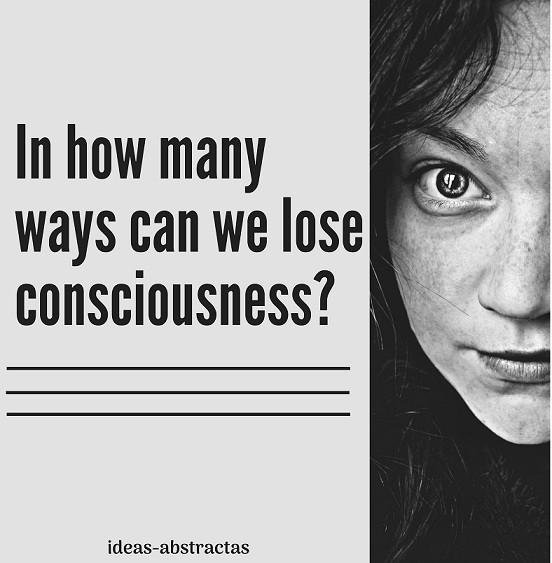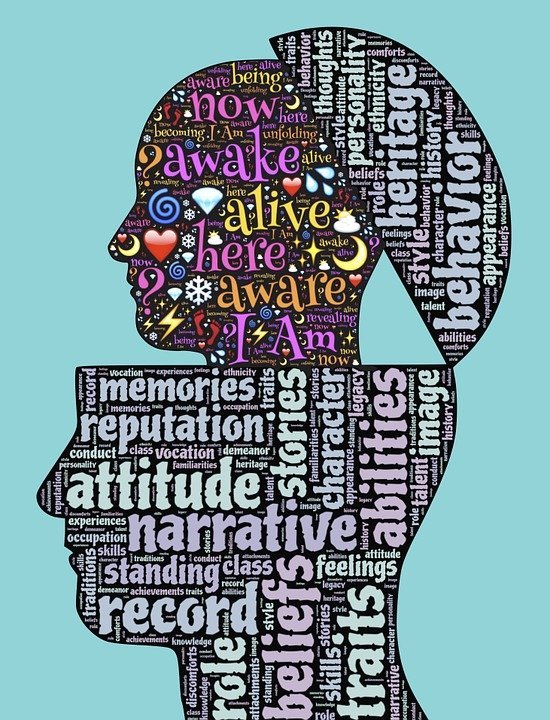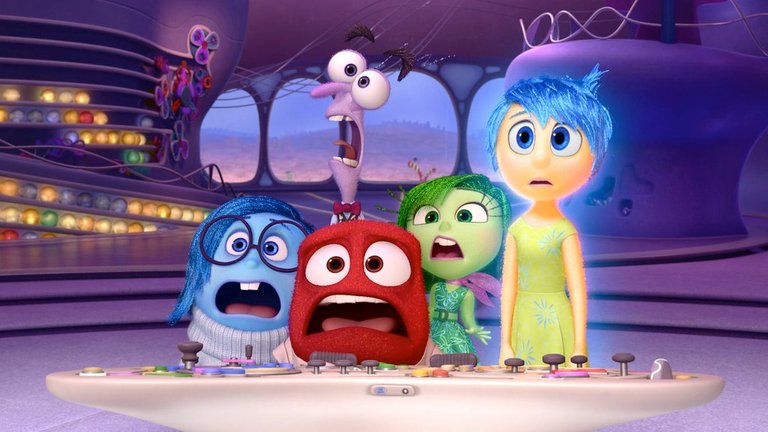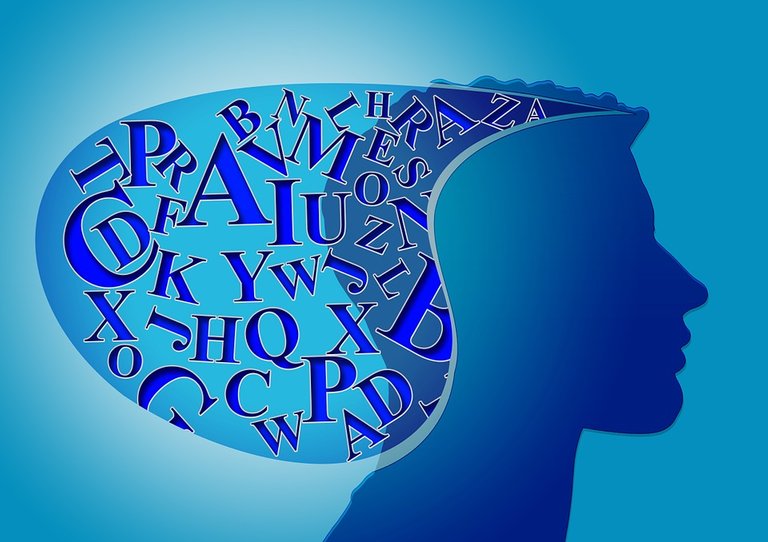
The human brain is that super organ that controls everything, that acts in everything and where all the processes and tasks that must be carried out in the body must pass, that is why it is perhaps one of the most important and surely the most powerful organs, however paradoxically our brain despite being so powerful, deep and complicated is also one of the most susceptible because there are a huge amount of problems not only physical that could damage it to the point of stopping it.
That is why I want to talk to you today about precisely that, about how and in what ways the brain can stop working, that is to say, what kind of problems or pathologies are capable of influencing our brain to the point of causing an enormous decrease in our brain activity.
If you read the title you may have been a little confused, especially if you have just read the first lines of the post, well let me clarify a little when I refer to the ways in which the brain can lose consciousness I am talking about the ways in which it can decrease its activity, that is to say that this post has nothing to do with that consciousness that makes us act right or wrong.
In short, let's talk about those complications that make our brain unable to keep itself active normally.
Be Conscious
Basically, when I refer to being conscious, I mean when we are in a state where we can perfectly control our decisions and reasoning, that is when our brain acts in a normal and natural way, processing all the information that reaches it in a correct and logical way.
Consciousness is the state or quality of awareness, or, of being aware of an external object or something within oneself
Wikipedia
If we try to explore a little more deeply what it means to be conscious, we will find that many times this term is easily associated with being awake, but although in many cases they go hand in hand on the same scale we could say that being conscious is a derivation of being awake. If we analyze some of our daily routines, we will realize that many times we are awake but we are not aware of what we are doing, or who has not been served coffee and for a moment has a small slip where he fills the cup and ends up burning, well, that precise moment where we have filled the cup too much and burned ourselves could be said to be the product of not being aware of what we were doing in that small moment.
Another clear example where we can clearly see the difference between these two "mental processes" is when in the mornings we are awakened by the alarm, open our eyes and simply lie there waiting for our body to start the daily process that will make us get up and start our day, while we are lying in bed looking at the ceiling we are awake, and when we finally wake up and start our day we are awake and conscious.
… Consciousness appearing simultaneously with awakening and at other times it will seem that you were awake for some time before you became conscious. This provides evidence that consciousness is content added to wakefulness.
Psychologytoday
In short, consciousness (psychologically and medically speaking), refers to the state where our brain is in full capacity and functioning of its being, that is, it is constantly processing and analyzing everything that enters and leaves it. That is why for many experts the brain as a whole could be considered as a neural correlate of consciousness because it is this kind of neural network that is responsible for our brain can work correctly and logically.
The brain as a whole can be considered an NCC, after all: it generates experience, day in and day out.
Scientificamerican
If I had to tell you my way, I would say that consciousness is the little man who makes sure that our brains work properly and that when he is not there our brains simply don't work properly. Kind of like the movie inside out.
Not being conscious
As I have emphasized, consciousness has an important role in the achievement of the processes that the brain carries out on a daily basis, and in fact when we find ourselves in a state of unconsciousness, it is impossible to act in a logical and/or rational way, since it is basically like being lost or rather not concentrated. Awake but not conscious.
Now entering the main topic of the post, there are different ways to lose consciousness but I will only try to explain the most important and significant ones so everything concerning the loss of consciousness as an effect derived from the consumption of drugs or alcohol will leave it out, since I consider that explaining how the consumption of this type of substance affects our synapses is something that most people should know and I do not want to be repetitive.
Obtundation
This is a very regular case where people lose consciousness as a result of their body and brain not having entered a fully functioning state. Basically, that's what happens to us with the example of the alarm that sounds when we wake up.
In short, in this state people tend not to be in total control of their mind and body because they are still lethargic or even somewhat asleep and that is why even though it seems that they are already fully awake and alert they are still unable to perform coherent and logical actions. It's basically like being in some kind of temporary limbo that prevents the brain from working properly.
Stupor
It is a very particular state because people are in a kind of sleepwalking that completely limits their way of acting and thinking and so makes them simply unable to act logically. I say that it is similar to sleepwalking because people will only be able to react and regain control of their body and mind when an external stimulus intervenes with sufficient intensity to cause them to regain consciousness. In fact, even if these people seem to have recovered and regained consciousness in many cases this or that happens and they tend to become delirious for a little longer.
This state is in certain circumstances so intense that it can cause people to immerse themselves in such a state that they are even unable to control their motor and physiological functions, making them in many cases simple puppets that cannot be controlled and are not even affected by external incentives.
Coma
Coma is a state of unconsciousness in which a person cannot be awakened; fails to respond normally to painful stimuli, light, or sound; lacks a normal wake-sleep cycle, and does not initiate voluntary actions.
Wikipedia
This is a very well-known state and unlike the previous ones where people were at least awake and could respond to certain types of stimulation, in this state the patients completely lose the sensation that makes them may or may not respond to provocations so they will remain in that state until their body responds on its own.
This state has a large number of pathological origins and hence the great intensity of loss of consciousness that it generates, in fact, the loss of consciousness is so high that the patient is unable to assume control of any type of brain function. In short, at this point, the brain is as if it were suspended in an almost eternal labyrinth from which it simply cannot leave and where it often gives up and stops working.
To make an analogy perhaps not very accurate is like a car that starts but cannot be moved.
Much research has helped to deduce that this state is a consequence of the brain itself seeking to protect itself, that is, that the brain causes people to enter this state as a way to protect themselves and reduce energy consumption and thus prevent and avoid further damage.
Brain death
This is undoubtedly the most intense stage of loss of consciousness because from here on there is no turning back and that is when people reach this stage the brain activity ceases completely and the brain basically shuts down to never turn on. At this point the brain sends a final signal that consists of the almost complete paralysis of the body's functions, it is as if the human body lost its pilot and is, therefore, unable to function without external help.
In addition to these 4 forms of loss of consciousness, there are also very specific disorders that cause people to experience a severe case of loss of consciousness as a result of some specific cognitive distortion that may be triggered in some of these just mentioned, however, I will leave that for another post.



As a follower of @followforupvotes this post has been randomly selected and upvoted! Enjoy your upvote and have a great day!
Peace, Abundance, and Liberty Network (PALnet) Discord Channel. It's a completely public and open space to all members of the Steemit community who voluntarily choose to be there.Congratulations! This post has been upvoted from the communal account, @minnowsupport, by Ideas-abstractas from the Minnow Support Project. It's a witness project run by aggroed, ausbitbank, teamsteem, someguy123, neoxian, followbtcnews, and netuoso. The goal is to help Steemit grow by supporting Minnows. Please find us at the
If you would like to delegate to the Minnow Support Project you can do so by clicking on the following links: 50SP, 100SP, 250SP, 500SP, 1000SP, 5000SP.
Be sure to leave at least 50SP undelegated on your account.
This post has been voted on by the steemstem curation team and voting trail.
There is more to SteemSTEM than just writing posts, check here for some more tips on being a community member. You can also join our discord here to get to know the rest of the community!
Hi @ideas-abstractas!
Your post was upvoted by utopian.io in cooperation with steemstem - supporting knowledge, innovation and technological advancement on the Steem Blockchain.
Contribute to Open Source with utopian.io
Learn how to contribute on our website and join the new open source economy.
Want to chat? Join the Utopian Community on Discord https://discord.gg/h52nFrV
@ideas-abstractas I always have a keen interest in mind sciences and you have written very comprehensive article my question is when a person loses his subconscious he does not know so is there any preventive measure to stop losing conscious state of mind?